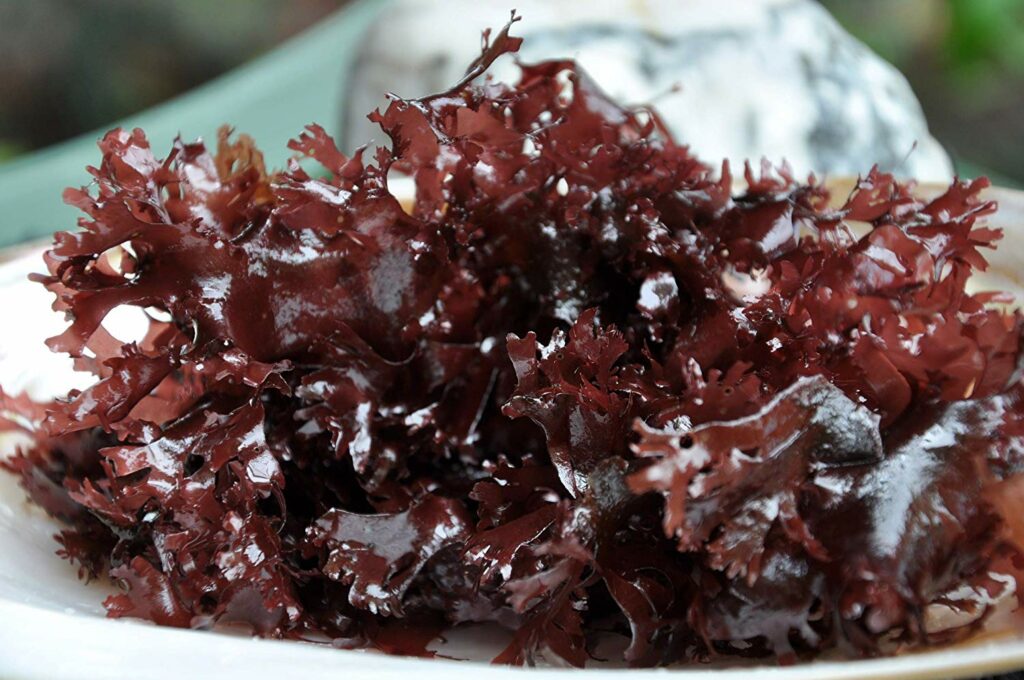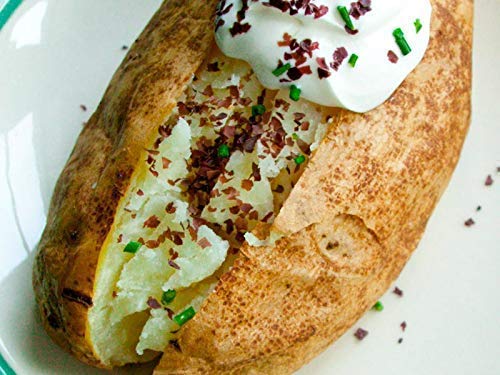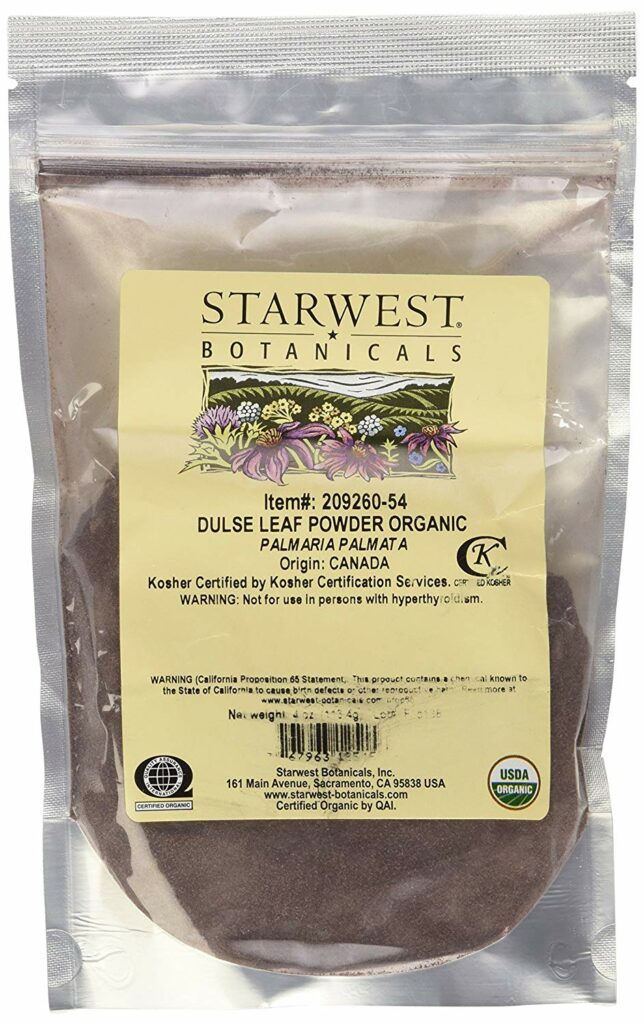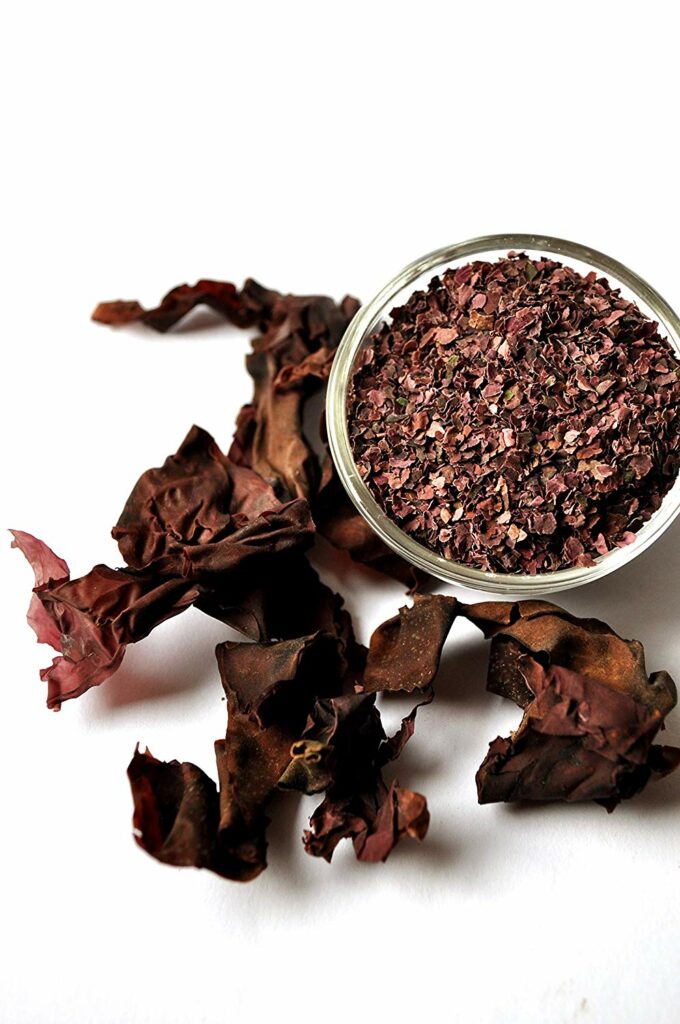What is Dulse?
Dulse seaweed which is also known by its scientific name Palmaria
Dulse seaweed is specifically known for this unique red or purple color. Dulse seaweed has a unique way of growing as they grow on the face of boulders and rocks. Dulse seaweed is being consumed by people since as long as 600 AD when the monks of Iona consumed it. It was also offered by native Indians of Canada to European sailors, who were ridden by Scurvy, a disease which is caused by the deficiency of Vitamin C.
Dulse Health Benefits

Dulse seaweed is a significant source of both protein and fiber. Dulse is a seaweed which is rich in nutrition and is becoming increasingly popular in health circles due to the fact that it has lots of nutrition properties, which can’t be seen in other kinds of seaweeds. Aiding to the cause, there are many experts who recommend people to add sea vegetables to their everyday diet, which includes dulse.
- Dulse seaweed benefits also include the significantly high levels of potassium and calcium which is essential in the maintenance of bones as well as making your bones strong.
- Dulse can also be beneficial to people suffering from high blood pressure as it lowers your blood pressure. Additional benefits of dulse include improving eyesight as well as keeping the thyroid gland fit.
- Adding Dulse Seaweed to a balanced diet can help one to boost their level of antioxidants they intake in the body as well as help the body with nutritional benefits.
These benefits of dulse seaweed are the reason why many dieticians and nutritionists are advising people to include dulse seaweed into their everyday diets.
Dulse Seaweed Nutrition

Many health experts claim on the internet about different kinds of seaweeds are often overstated. However, Dulse seaweed can be very helpful for you as it contains the same amount of nutrition as you would get from healthy foods that are plant based. The varying nutrition profile of dulse seaweed makes it a smart choice to add dulse seaweed to your daily diets.
A six tablespoons or one-third cup of dried dulse seaweed leaves can provide your body with approximately twenty calories. The same amount of dulse-seaweed also contains other nutrients like iron and potassium. Dulse is also specifically rich in iodine content as well as vitamin B6, which is vital to maintaining the health of nerves, red blood cells as well as skin in the human body. Additionally, a serving of Dulse Seaweed also contains two grams of protein and approximately the same amount of fiber content.
Dulse Seaweed Whole Foods
Dulse seaweed can be consumed as both a whole leaf or as flakes. Dulse seaweed, when eaten as a whole leaf tastes salty. Some say, that dulse tastes like bacon! Consuming dulse seaweed as a whole food is beneficial as you can have the most of the nutrition value this seaweed offers.
Dulse seaweed whole leaves can be a good ingredient in salads or in occasional snacks. Whole Leaves of dulse seaweed has a soft texture which is also chewy. It also has a distinctive taste and does not taste bland like some other salad items. The rich red color of dulse whole leaves makes salads more visually appealing.
You can also get smoked flavors of whole leaf dulse seaweed. Smoked dulse seaweed is more tender than regular dulse seaweed and it also has a tangy flavor. Smoked dulse can be a flavorful ingredient in sandwiches, soups as well as salads.
Dulse Seaweed Powder

Dulse seaweed can be consumed in powder forms along with whole leaf forms. Dulse seaweed powder is enjoyed with different kinds of fluids like energy drinks, soups, various juices. It can also be mixed with various dressings and sauces to increase their flavor and add nutritional benefits to them. It has a smooth texture which can blend perfectly with other ingredients in seasonings. Additionally, Dulse in powder form can also be put into capsules and consumed as a health supplement.
Dulse Seaweed Flakes

Dulse seaweed is also available as flakes which can be consumed as snack. Dulse seaweed flakes has a fine red color and crispy texture which allows for a satisfying feeling in the mouth when eaten. Dulse seaweed flakes can deliver the taste of the seaweed better than whole leaf dulse seaweed.
Additionally, the nearly one mm size of the flakes makes them melt on the tongue pleasingly. This allows the protein receptors on the surface of the tongue to intake more glutamates into our system. This is called umami effect which enhances the palatability of dulse seaweed. This makes dulse seaweed an optimal replacement for many kinds of salts and seasonings in your daily diet. Dulse can also be enjoyed with other umami flavors like cured meat, mushrooms, parmesan cheese, and onions too.
Dulse Side-effects
Because vegetables found in the sea are more prone to nature than field vegetables, they are to be checked for poisoning by heavy metals before eating. You should also check for tiny rock particles or seashells that can be intertwined in the dense and curly leaves of dulse seaweed.
Also, due to the high potassium content in dulse seaweed, patients suffering from kidney problems can suffer from symptoms like nausea or weakness. This is due to the fact that the weakened kidney of kidney patients cannot remove an excess amount of potassium from the body effectively. As excess potassium can hamper the heart rhythm of the body and cause deadly effects.
Dulse, like other similar seaweeds, is a good source of iodine. This iodine can be harmful to some people, if taken excessively. People, who are pregnant, are breastfeeding or are on any kind of medication or have health conditions which can be heightened by excess iodine levels are not advised to consume dulse seaweed. One should check with their doctor before consuming seaweed or their derivative products in such cases.
I enjoy sprinkling dulse seaweed on my savoury sandwiches. Lovely test and certainly i feel healthier for it.
I enjoy sprinkling dulse seaweed on my savoury sandwiches. Lovely taste and certainly i feel healthier for it.